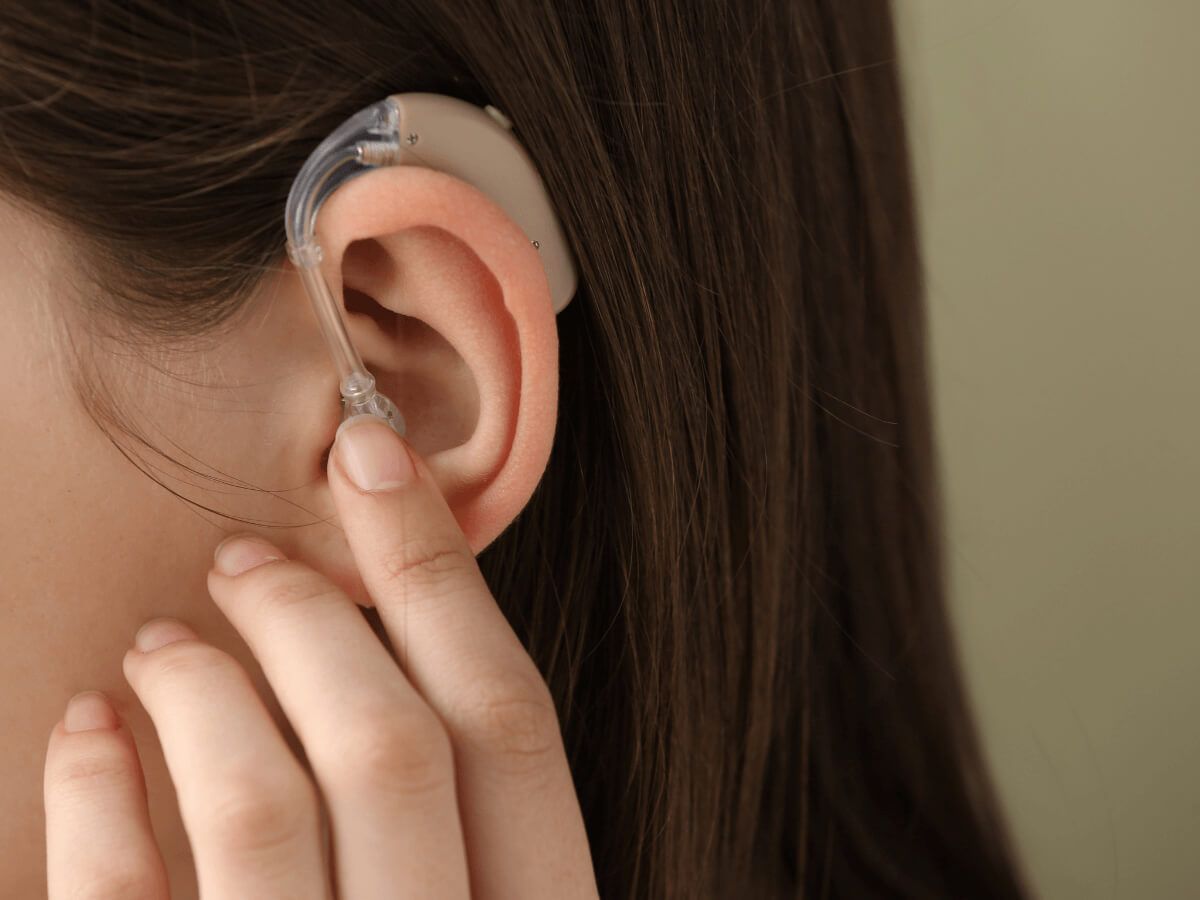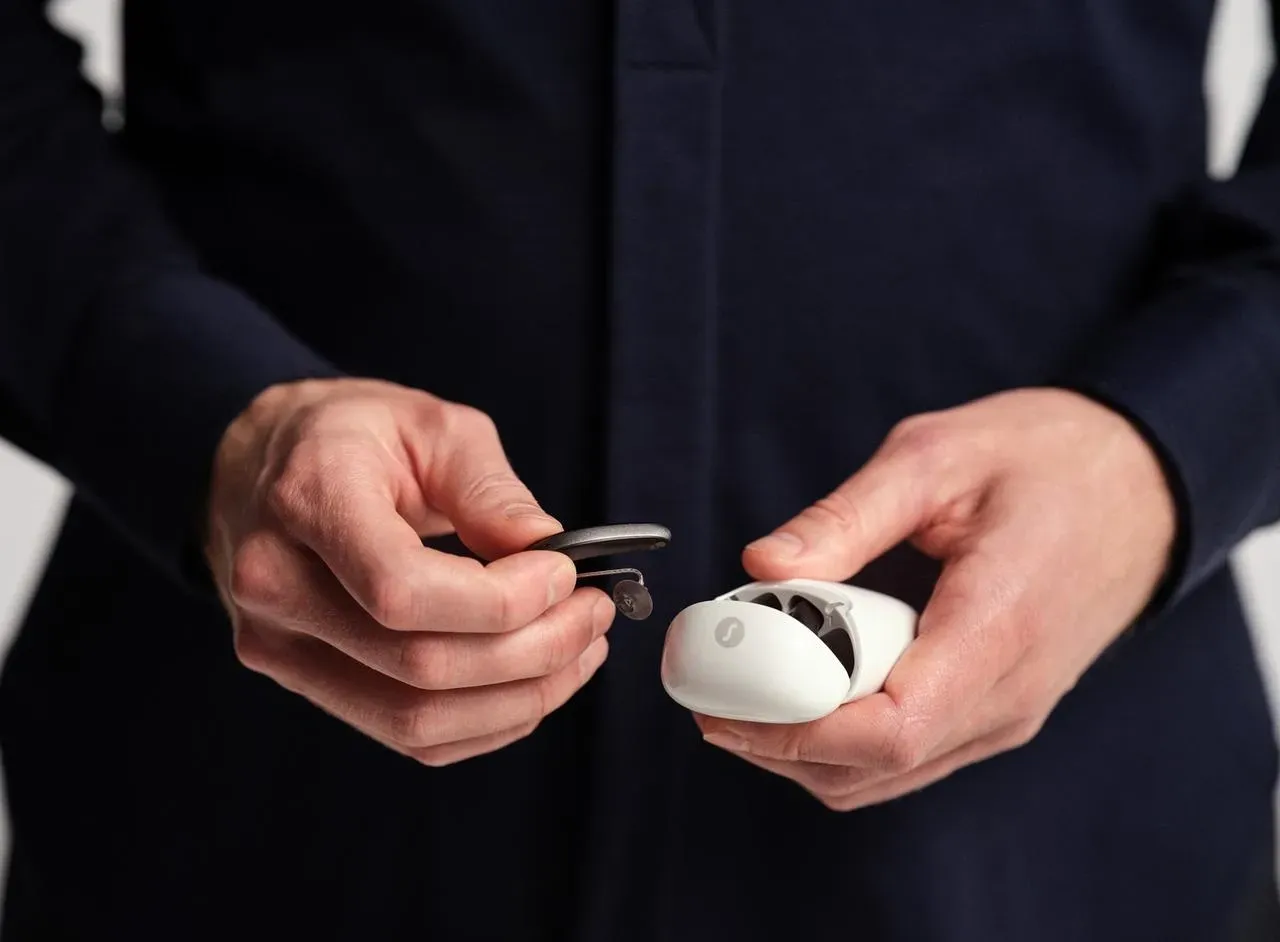Cochlear Implants vs. Hearing Aids: Benefits, Costs, and Effectiveness
Hearing loss can make life difficult, but new technologies are here to help. Cochlear implants and hearing aids are two amazing inventions that can change lives.
Hearing aids work by making sounds louder for your ears to hear. Cochlear implants, on the other hand, bypass damaged parts of your ear and send signals directly to your brain.
This article explains the differences between these two options. We'll look at their pros and cons, costs, and how well they work. We'll also help you understand who might be a good fit for each one so you can make the best choice for your hearing.
Understanding Hearing Loss and Treatment Options

Hearing loss can substantially diminish a person's quality of life, yet there are effective treatments. Differentiating the various types of hearing loss and the function of treatment devices, like hearing aids and cochlear implants, empowers individuals to make well-informed decisions about their hearing health.
Types of Hearing Loss
Conductive Hearing Loss
Conductive hearing impairment happens when sound waves encounter obstacles in their path from the outer ear to the middle ear. This type of hearing loss is often due to blockages or infections in the ear canal or middle ear. Conditions like ear infections, fluid buildup, or earwax can cause this temporary hearing impairment. Treatment may involve medications or minor surgical procedures to remove obstructions.
Sensorineural Hearing Loss
Sensorineural hearing loss results from damage to the inner ear, namely the cochlea or the nerve responsible for hearing. This form of hearing loss can result from various factors, including aging, excessive noise exposure, and genetic predisposition.
Sensorineural hearing loss impacts an individual's capacity to comprehend speech and perceive sounds with clarity. It is generally irreversible, necessitating intervention with hearing aids or cochlear implants to manage it.
Mixed Hearing Loss
When the elements of conductive and sensorineural hearing loss are combined, it's called mixed hearing loss. This means that a person experiences issues with sound transmission as well as damage to the inner ear or auditory nerve. Treatment often involves addressing both the conductive and sensorineural components to improve overall hearing.
How Hearing Aids Work
Hearing aids are electronic devices that amplify sound, enabling those with mild to moderate hearing impairments to hear more clearly. They work by capturing sound through a microphone, increasing its intensity through an amplifier, and then delivering the amplified sound directly into the ear canal through a speaker.
Hearing aids are typically worn behind the ear or in the ear canal. They can help people with hearing loss make sounds louder, improving their ability to hear and understand speech.
How Cochlear Implants Work
Cochlear implants provide an alternative for individuals with substantial hearing loss. Unlike hearing aids that amplify sound, they bypass damaged cochlear hair cells and directly stimulate the auditory nerve. This allows the brain to receive electrical signals that are interpreted as sound.
The cochlear implant system has two main components:
- Internal Portion: This portion is surgically implanted under the skin behind the ear and includes a receiver/stimulator and an electrode array. A surgically implanted electrode array within the cochlea utilizes electrical impulses to directly stimulate the auditory nerve.
- External Portion: This device includes a microphone, a speech processor, and a transmitter that rests behind the ear. The microphone captures sounds, which the speech processor then converts into electrical signals sent to the internal component.
Cochlear implants are highly recommended for individuals with significant sensorineural hearing loss who no longer benefit from hearing aids. While they don't return hearing to normal levels, they can greatly enhance the capacity to understand spoken words and perceive surrounding sounds.
Both hearing aids and cochlear implants play crucial roles in managing hearing loss, and the choice between them depends on the
type and severity of hearing loss. If you or someone you know is experiencing hearing loss, consulting a hearing specialist can help determine the best treatment option.
Key Differences Between Cochlear Implant and Hearing Aid

When dealing with hearing loss, deciding between cochlear implants and hearing aids is an important consideration. While both aim to enhance hearing, they operate in distinct ways. Knowing the difference between a cochlear implant and a hearing aid can assist you in choosing the option that best fits your personal needs and situation.
| Feature | Hearing Aid | Cochlear Implant |
|---|---|---|
| Functionality | Amplifies sound | Replaces damaged auditory components |
| Candidacy | Mild to moderate hearing loss | Severe to profound hearing loss |
| Procedure | Non-invasive fitting | Surgical implantation |
| Cost | Lower upfront cost, often partially covered by insurance | Higher costs may not be fully covered by insurance |
| Lifespan | 3-7 years | Internal components last for many years, and external may need updates |
| Sound Quality | More natural sound quality, limited by the extent of hearing loss | Different perceptions may take time to adapt |
Benefits of Cochlear Implant Surgery
Cochlear implants provide a life-changing option for people with significant hearing loss who don't experience improvement with traditional hearing aids. These compact electronic devices offer important advantages that can substantially enhance the lives of individuals facing major hearing difficulties.
Restored Hearing for Severe/Profound Loss
One of the most notable benefits of cochlear implants is their ability to restore hearing for people with severe or profound hearing loss. Cochlear implants offer a distinct advantage over hearing aids by bypassing damaged hair cells in the cochlea and directly stimulating the auditory nerve.
Unlike hearing aids, which only amplify sound, cochlear implants convert sound into electrical impulses and transmit these signals straight to the auditory nerve. This method is especially beneficial for those with severe hearing loss, providing them with the ability to detect sounds that might be missed with conventional hearing aids.
Improved Speech Understanding
Cochlear implants are designed to enhance speech understanding, which is often a challenge for those with profound hearing loss. Users of cochlear implants often report a significant enhancement in their ability to understand speech in various environments, including noisy settings.
The cochlear implant system includes a speech processor that analyzes and converts sound into electrical impulses, which are then transmitted to the cochlea. This process helps users discern spoken words more clearly, making conversations more manageable and enriching their social interactions.
Enhanced Quality of Life
Receiving a cochlear implant can substantially improve overall quality of life. For many individuals, the ability to hear more effectively means a greater sense of independence and participation in daily activities.
With enhanced hearing, individuals can more fully enjoy activities like watching TV, listening to their favorite music, and having meaningful conversations with loved ones. This increased ability to interact with the world around them can also enhance mental well-being and reduce feelings of isolation that often accompany severe hearing loss.
Potential to Regain Environmental Awareness
Another significant benefit of cochlear implants is the potential to regain environmental awareness. Cochlear implants can help users detect and locate environmental sounds that might be missed with hearing aids alone. For example, users may be able to hear traffic noises, alarms, or the sounds of a doorbell, which can improve safety and help users stay aware of their surroundings. This heightened environmental awareness contributes to a more integrated and active lifestyle.
The Upsides of Hearing Aids
Hearing aids have significantly evolved! They’re no longer the large, cumbersome devices of the past. Let’s explore why they could be the perfect fit for your needs.
Non-invasive and User-Friendly
First, hearing aids are a non-invasive solution—no surgery is required! They're small electronic devices you wear in or behind your ear. They're designed to be comfortable and easy to use, so you can pop them in and go about your day.
Amplify Sound in Various Environments
Hearing aids are like tiny sound amplifiers that help you hear better in different situations. Whether you're chatting with friends at a noisy restaurant, watching TV, or listening to music, hearing aids can adjust to your environment and make sounds clearer.
Discreet and Stylish Designs
Worried about looking like you're wearing a hearing aid? Don't be! These days, hearing aids come in a variety of discreet and stylish designs. Some are so small that they're practically invisible! You can even find hearing aids in different colors to match your personal style.
Tech-Savvy Features
Hearing aids do more than simply boost sound levels. They come equipped with advanced features such as Bluetooth connectivity, enabling you to stream phone calls, music, and other audio directly to your devices. Additionally, many models offer rechargeable batteries, eliminating the hassle of handling small, replaceable batteries.
Cost Comparison: Cochlear Implants vs. Hearing Aids
One of the most important factors for many people when considering cochlear implants vs. hearing aids is the cost. Both choices require a considerable financial commitment, but the costs can differ greatly depending on various factors. Let's break down the costs associated with each to help you make an informed decision.
How Much Do Cochlear Implant Costs
Cochlear implants are typically more expensive than hearing aids due to the complexity of the device and the surgery involved. The total cost of a cochlear implant includes:
- Surgery: The procedure to implant the device involves a surgeon making an incision behind the ear to place the internal components. This part of cochlear implant surgery can cost between $30,000 and $50,000 in the U.S.
- Device: The implant itself, which includes the external microphone and processor, as well as the internal stimulator and electrode array. These devices can range from $20,000 to $40,000.
- Rehabilitation: After surgery, patients require ongoing audiology appointments and programming (mapping) sessions to adjust the device and optimize hearing. Rehabilitation costs can add several thousand dollars over time.
While the upfront costs are high, some insurance plans and government programs may cover part or all of the expenses. It’s important to contact your insurance provider to review your coverage details.
Hearing Aid Prices
While hearing aids are a less expensive option compared to cochlear implants, the cost can vary based on the specific model and its capabilities. For a single hearing aid, consumers can expect to pay between $1,000 and $6,000. Factors influencing the price include:
- Technology: Basic models amplify sound, while advanced models may include features like directional microphones, Bluetooth connectivity, and noise reduction technology.
- Features: More advanced hearing aids offer greater customization and convenience, which can increase the cost.
Unlike cochlear implants, hearing aids usually do not require surgery, eliminating the associated medical costs. However, their lifespan is typically shorter, around 3 to 7 years, and they may require more frequent replacements and upgrades.
Insurance Coverage and Long-Term Costs
Insurance coverage for hearing aids varies widely. Some insurance plans offer partial coverage, but many do not cover hearing aids at all. In contrast, cochlear implants are more likely to be covered by insurance, Medicare, and Medicaid due to their classification as a medical necessity for severe hearing loss.
When considering long-term costs, it's important to factor in maintenance and potential upgrades. Cochlear implants often have higher initial costs but may be more cost-effective over time due to their longer lifespan and the substantial improvement in hearing they can provide. Hearing aids, while less expensive initially, may incur higher cumulative costs due to more frequent replacements and repairs.
Things to Think About in the Cochlear Implants vs. Hearing Aids Debate
Choosing between cochlear implants and hearing aids isn't a one-size-fits-all situation. It's a personal journey that depends on several key factors.
- How Bad is Your Hearing Loss?
The severity and type of hearing loss play a big role. If someone is experiencing mild or moderate hearing loss, hearing aids could be an ideal solution. But if their hearing loss is more severe, a cochlear implant could be the game-changer they need. - What's Your Lifestyle Like?
Think about your daily life and communication needs. Do you spend a lot of time in noisy environments? Are you a social butterfly or more of a homebody? Your lifestyle can help you determine which device is best suited for your needs. - Money Matters
As we discussed earlier, cochlear implants and hearing aids have different price tags. When making your decision, it's important to consider your financial resources and insurance coverage. - Your Personal Preferences
Ultimately, the choice is yours. Some people prefer the non-invasive nature of hearing aids. In contrast, others are willing to undergo surgery for the potential benefits of a cochlear implant. Talk to your hearing specialist about your preferences and concerns to help you make the right call.
Making the Right Choice
Choosing between cochlear implants and hearing aids is a personal decision that hinges on your unique needs and circumstances. Each device has its own set of benefits and drawbacks, making it crucial to carefully consider which option is the right fit for you.
Hearing aids are a great option for people with mild to moderate hearing loss. They are noninvasive and often more affordable. They work by amplifying sounds, making them easier to hear and understand.
Conversely, individuals experiencing severe to profound hearing loss are optimal candidates for cochlear implants. These devices circumvent damaged hair cells within the inner ear, directly engaging the auditory nerve to facilitate a higher level of hearing recovery.
Your Hearing Journey Starts Here
The journey to improved hearing starts with exploring your choices. Keep in mind that this guide does not substitute for professional medical advice. To identify the best device for you, it’s important to speak with a hearing specialist. They can evaluate your unique needs, address your expectations, and help you choose the most appropriate solution.
Ready to take the next step? Schedule a consultation with a hearing specialist today! They can address any concerns you have, conduct thorough hearing evaluations, and guide you towards enhanced hearing and a more fulfilling life.


